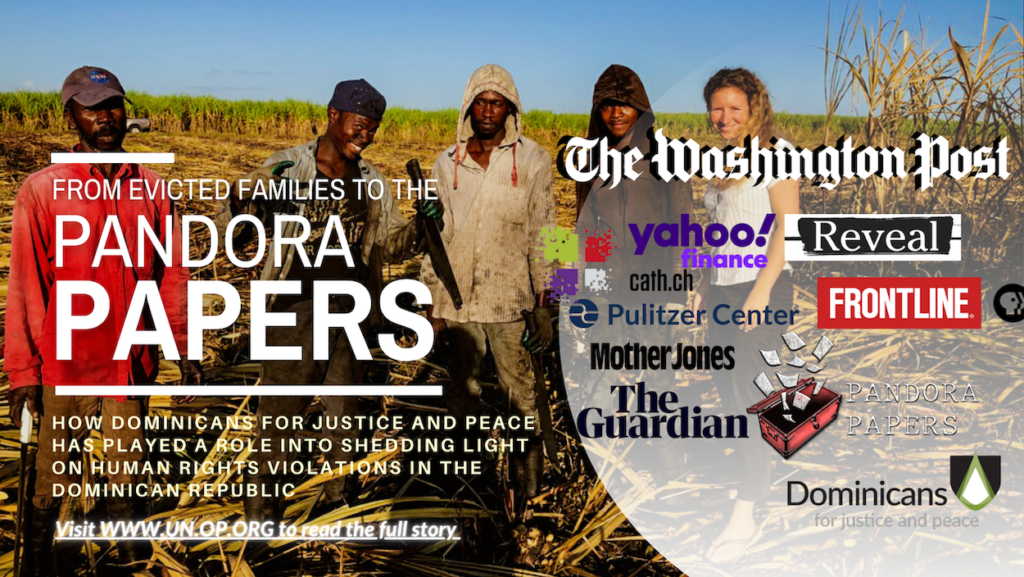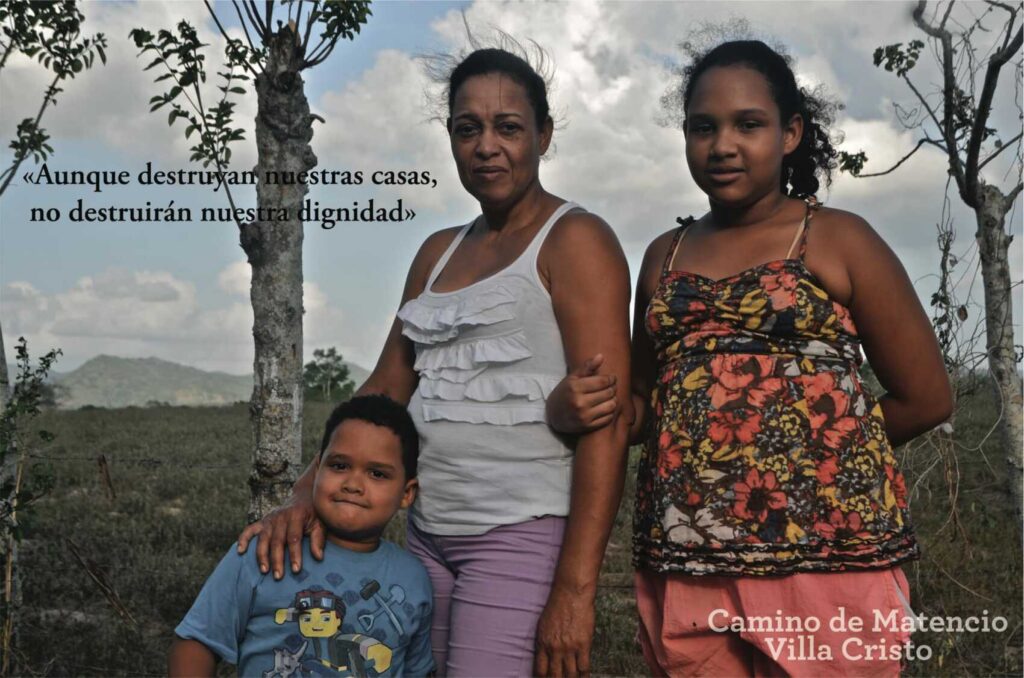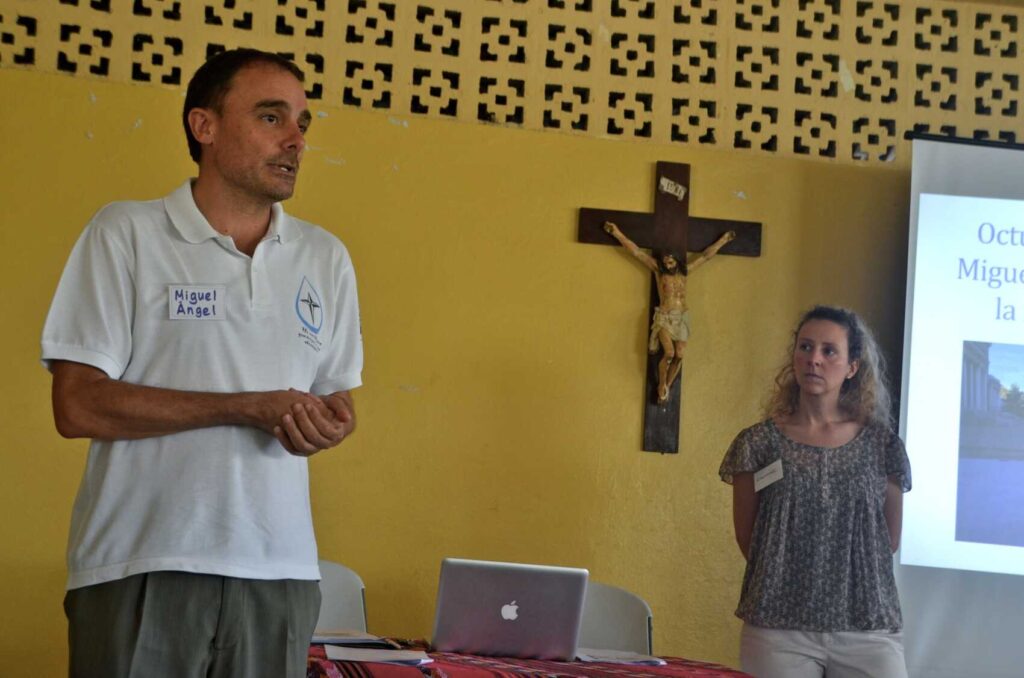
From Evicted Families to the Pandora Papers
–
How Dominicans for Justice and Peace has played a role into shedding light
on human rights violations in the Dominican Republic
by Tobias Krachler
November 2021
In early October 2021, the International Consortium of Investigative Journalists (ICIJ) shook the world with its investigation into financial fraud involving high-profile figures, called the Pandora Papers. Throughout the investigation, the Consortium and The Washington Post journalists gathered crucial information on the human rights violations committed around the production of sugar in the Dominican Republic. This is an issue that Dominicans for Justice and Peace has been advocating on for many years.
January 26th is a National Holiday of the Dominican Republic, it is dedicated to Juan Pablo Duarte, one of the founders of the Republic. It should be a day of celebrations, not so in 2016. At 3am, in the region of El Seibo, 60 families got evicted from their homes. Around 300 people, including children, were forcibly removed from their house, their homes were destroyed, and they were left with nothing.

Fr. Miguel Ángel Gullón Pérez OP, based in El Seibo, reached out to Dominicans for Justice and Peace, to plead with the International Community on behalf of those wronged. The unlawful evictions are, sadly, only one among many human rights violations surrounding the production of sugar and Central Romana.
In March of 2016 and on the basis that the evictions were not only unlawful under the legislation of the Dominican Republic but also in violation of international human rights treaties, we submitted an urgent appeal to the UN Special Rapporteur on the right to adequate housing. Further, the issues were communicated to the Permanent Mission of the Dominican Republic in Geneva and also to Central Romana.
By the end of 2017, we received negative responses from Central Romana lawyers. Government officials from Santo Domingo advised us to take a less public stance to ensure an amicable solution, and the complaint by the victims was rejected by the Public Ministry. Clearly, a more active hands-on approach was needed.
In 2018, representatives of our Delegation in Geneva visited the Dominican Republic for the first time. We met with the evicted victims, organized and held a human rights advocacy training with the Dominican Family and civil society partners, and met with local lawyers. We then submitted a report at the United Nations Universal Periodic Review, calling out the evictions and other human rights violations in connection with the sugar production.
But more was needed and for a side event during the Human Rights Council in 2018, Claribel, a victim and representative of victim families, and Fr. Damian Calvo OP, were brought to Geneva to give testimony on the social wrongs. We achieved to raise awareness for the issue, but there still was no justice for the evicted. 2019 saw a second visit to the Dominican Republic and a consequent training.
 In January 2020, a complaint was filed by the families in the US against Central Romana and Fanjul Corp., the mother company in the US. The case is currently under review by the 11th Circuit Court of Appeals, after being rejected before by the US District Court of Southern District of Florida.
In January 2020, a complaint was filed by the families in the US against Central Romana and Fanjul Corp., the mother company in the US. The case is currently under review by the 11th Circuit Court of Appeals, after being rejected before by the US District Court of Southern District of Florida.
After all those years, what has actually been achieved? Was it all worth it?
The direct impacts of advocacy at the international level are always by far the most difficult to show. For direct results to be measurable or be seen, it can take years. Processes at International Organizations move sometimes painfully slow, yet engaging at those levels is never pointless. Through our direct actions in the Dominican Republic and through the visibility that only comes with engagement at the United Nations, we could help those victimized by Central Romana.
Here are some of the achievements that were made possible due to our engagement in this matter: Bonsucro, a multistakeholder governance group to promote sustainable sugar cane, rejected Central Romana’s application for certification. A few weeks ago, the journalists Sandy Tolan and Euclides Cordero published an investigation in the US about the inhuman working conditions in the sugar production in the Dominican Republic. It is an issue that we have directly addressed on the ground as well as at the United Nations. We also provided the journalists with background information on this sad reality. The Washington Post, in their story on the Pandora Papers, featured the human rights violations committed by Central Romana prominently. These investigations have caught the attention of the US Congress and, on the 26th of October 2021, 15 members called for an investigation into the labor law and human rights violations of the sugar production in the Dominican Republic.
Through our training, the victims and the civil society of the El Seibo province have organized themselves and formed the group Seibanos sin techo, to be able to defend themselves against future human rights violations. We established channels which permitted our local partners to stay in contact with UN staff members working on those issues, keeping the pressure up for Central Romana and the Government. Our engagement, and training not only allowed Claribel to raise her story at the UN but helped transform her from a voiceless victim to an active human rights defender.
Our struggle to uphold the dignity of the people in the Dominican Republic will not end here. Now more than ever, we must continue to stand up for the rights of these most vulnerable groups and lay the foundations for a brighter future.

“It means a great deal to those who are oppressed to know that they are not alone. Never let anyone tell you that what you are doing is insignificant.”
— Desmond Tutu
REFERENCES:
Reveal – The Bitter Work Behind Sugar
MotherJones – The High Human Cost of America’s Sugar Habit
The Guardians – Pandora papers reveal South Dakota’s role as $367bn tax haven
PBS Frontlines – PANDORA PAPERS: Video & Major Stories From Our Partners
Pulitzer Center – The High Human Cost of America’s Sugar Habit

